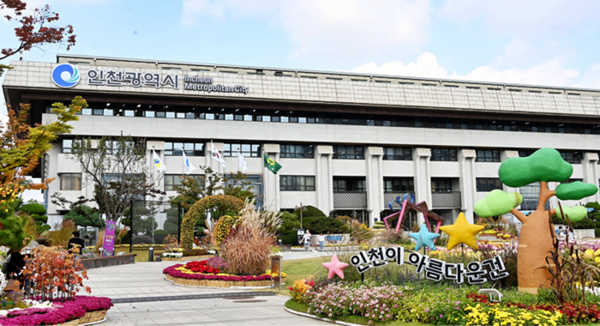
Incheon, South Korea – In a significant stride towards enhancing the welfare and working conditions of its social welfare facility employees, Incheon Metropolitan City has secured the second-highest compliance rate nationwide for social welfare worker salary guidelines. This impressive achievement positions Incheon as a leading municipality in prioritizing the well-being of its dedicated welfare professionals.
According to the "2024 Social Welfare Local Transfer Facility Worker Salary Guideline Compliance Rate Status" released by the Ministry of Health and Welfare, Incheon achieved a remarkable compliance rate of 102.9%, trailing only Seoul. This marks a substantial improvement from its 2019 ranking of ninth nationwide with a 99.3% compliance rate. Over the past three years, Incheon has consistently maintained a top-tier position among metropolitan cities and provinces, steadily narrowing the gap with Seoul to a mere 0.6 percentage points.
This consistent climb reflects Incheon's unwavering commitment to fostering a supportive and equitable environment for its social welfare workforce. The city's proactive approach extends beyond mere salary increases, encompassing a comprehensive array of welfare benefits and initiatives aimed at improving overall working conditions.
A Legacy of Progressive Welfare Policies
Incheon's journey to the forefront of welfare worker compensation is built upon a foundation of pioneering policies. In 2018, the city became the first in the nation to provide special duty allowances for social welfare professionals working in challenging environments. This was followed by the introduction of the seniority-based pay system (호봉제) in 2020 for national-funded social welfare facilities, a crucial step towards ensuring fair and transparent compensation progression.
These efforts culminated in both national and city-funded facilities achieving 100% compliance with the Ministry of Health and Welfare's salary guidelines starting in 2023. This milestone underscores Incheon's dedication to ensuring its welfare workers receive compensation commensurate with their vital contributions to society.
Future-Forward Initiatives: The "Social Welfare Facility Worker Treatment Improvement 3-Year Plan (2024-2026)"
Incheon is not resting on its laurels. The city has laid out an ambitious "Social Welfare Facility Worker Treatment Improvement 3-Year Plan (2024-2026)" to further elevate the standards of welfare worker well-being. This plan outlines a series of tangible benefits and expanded support systems.
Under the current phase of the plan, Incheon has already implemented:
A monthly increase of ₩30,000 for fixed meal allowances.
Expanded application of childcare leave to national-funded facilities.
Extension of paid long-term leave periods for employees with 5 or more years of service.
Looking ahead to 2025, the plan includes:
An annual increase of ₩50,000 (50 points) in welfare benefits.
A 100% increase in professional training fees for social workers.
Support for overseas training programs for employees.
These initiatives are designed to not only enhance financial compensation but also to invest in the professional development and personal well-being of Incheon's social welfare professionals.
A Collaborative Model for Quality Welfare Services
Shin Byung-cheol, Director of Incheon's Health and Welfare Bureau, emphasized the collaborative spirit behind these achievements. "Incheon City has consistently fostered institutional foundations through continuous communication and cooperation between the public and private sectors to improve the treatment of social welfare facility workers," he stated. "We will continue to proactively pursue treatment improvements to ensure that talented professionals, equipped with expertise and pride, can provide even higher quality welfare services to our citizens."
Incheon's leading position in welfare worker compensation and comprehensive support stands as a testament to its forward-thinking governance and its profound commitment to both its social welfare workforce and the citizens they serve. This progressive approach is expected to not only improve the working conditions for these essential professionals but also to elevate the overall quality and accessibility of welfare services throughout the city.
[Copyright (c) Global Economic Times. All Rights Reserved.]



























